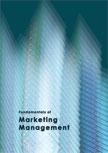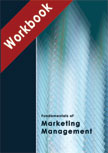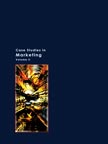Red Bull's Innovative Marketing: Transforming a Humdrum Product into a Happening Brand
|
ICMR HOME | Case Studies Collection 
Custom Search
Please note: |
||||||
|
<< Previous
"In terms of attracting new customers and enhancing consumer loyalty, Red Bull has a more effective branding campaign than Coke or Pepsi. Red Bull is building a beverage brand without relying on the essential equipment of a mass-marketing campaign. Perhaps the indispensable tools of marketing aren't so indispensable after all." 1 - Nancy Koehn, Professor of Business Administration at Harvard Business School, in 2001. "When we first started, we said there is no existing market for Red Bull. But Red Bull will create it. And this is what finally became true." 2 - Dietrich Mateschitz, Founder and Managing Partner of Red Bull GmbH, in 2005. Red Bull Acquires Second F1 Team
Red Bull Racing had participated in F1 as Jaguar Racing, until Mateschitz bought it from its previous owner, the Ford Motor Company (Ford) in November 2004. After the acquisition of Minardi, Mateschitz announced that Red Bull Racing would be the company's main team, and the newly acquired Minardi (renamed Scuderia Toro Rosso (STR)5 for the 2006 racing season) would serve as the 'rookie team' in 2006. Red Bull GmbH intended to use the team to train young drivers sponsored by the company.
For a product that did not have any extraordinary qualities, and was made of ingredients whose effects had often been called into question,7 Red Bull had a huge market presence. The company was reported to hold almost 70 percent of the worldwide market for energy drinks in 2005. Analysts attributed the beverage's success to the unconventional marketing strategy adopted by the company to promote it in new markets.
Red Bull's Innovative Marketing: Transforming a Humdrum Product into a Happening Brand - Next Page>> 
Custom Search
1] Anni Layne Rodgers, " It's a (Red) Bull Market After All," Fast Company, October 2001. |
Case Studies Links:-
Case Studies,
Short Case Studies,
Simplified Case Studies.
Other Case Studies:-
Multimedia Case Studies,
Cases in Other Languages.
Business Reports Link:-
Business Reports.
Books:-
Text Books,
Work Books,
Case Study Volumes.






